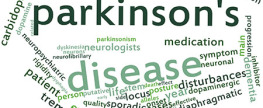
Anna Mary Roberston Moses was 76 years old when she picked up a paintbrush for the first time. Discovered by an art collector who was passing through her town, Moses, who became known world-wide as “Grandmother Moses”, soon became one of the art world’s most sought-after artist, with many of her paintings hanging in museums all over the world, including Paris and Vienna. As you enter your older years, many of your hobbies will change, often due to circumstances beyond your control. Creativity is unique it is something that is driven by will and determination. Whether it’s painting, writing, singing, or creating through another medium, there is a power that lies within using your imagination to produce something. The National Endowments for the Arts commissioned a study in 2001 to measure the impact of a cultural, artistic program on people, aged 65 and older. The results were staggering. Those participating in the cultural program not only reported having overall better health, with less doctor visits, need for over-the-counter medicine, and falls, but also had a significant improvement in mental health. The cultural program participants also reported an increase in the number of activities they were participating in, showing that being part of a creative community could help build a stronger social connection. So how exactly does creative expression help you age better? This question can be answered in five simple parts: It Empowers You With age, we lose control over so much in our life. Retirement often leaves us with a sense of uncertainty, so much of our identity being rooted in our “work”. By engaging in a creative endeavor you assign yourself something to be connected to, something to find pride in. With mastery and dedication, comes a...









